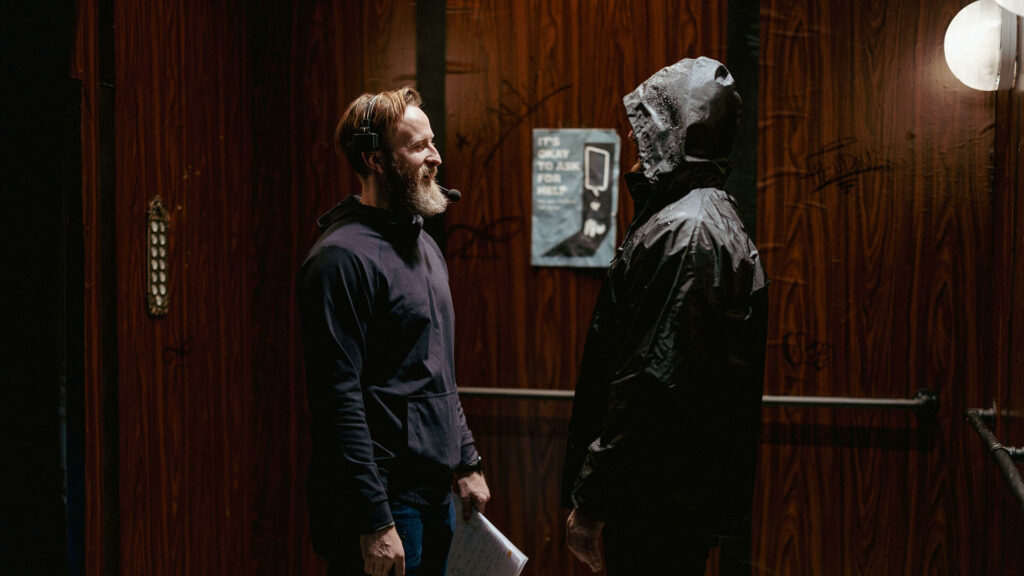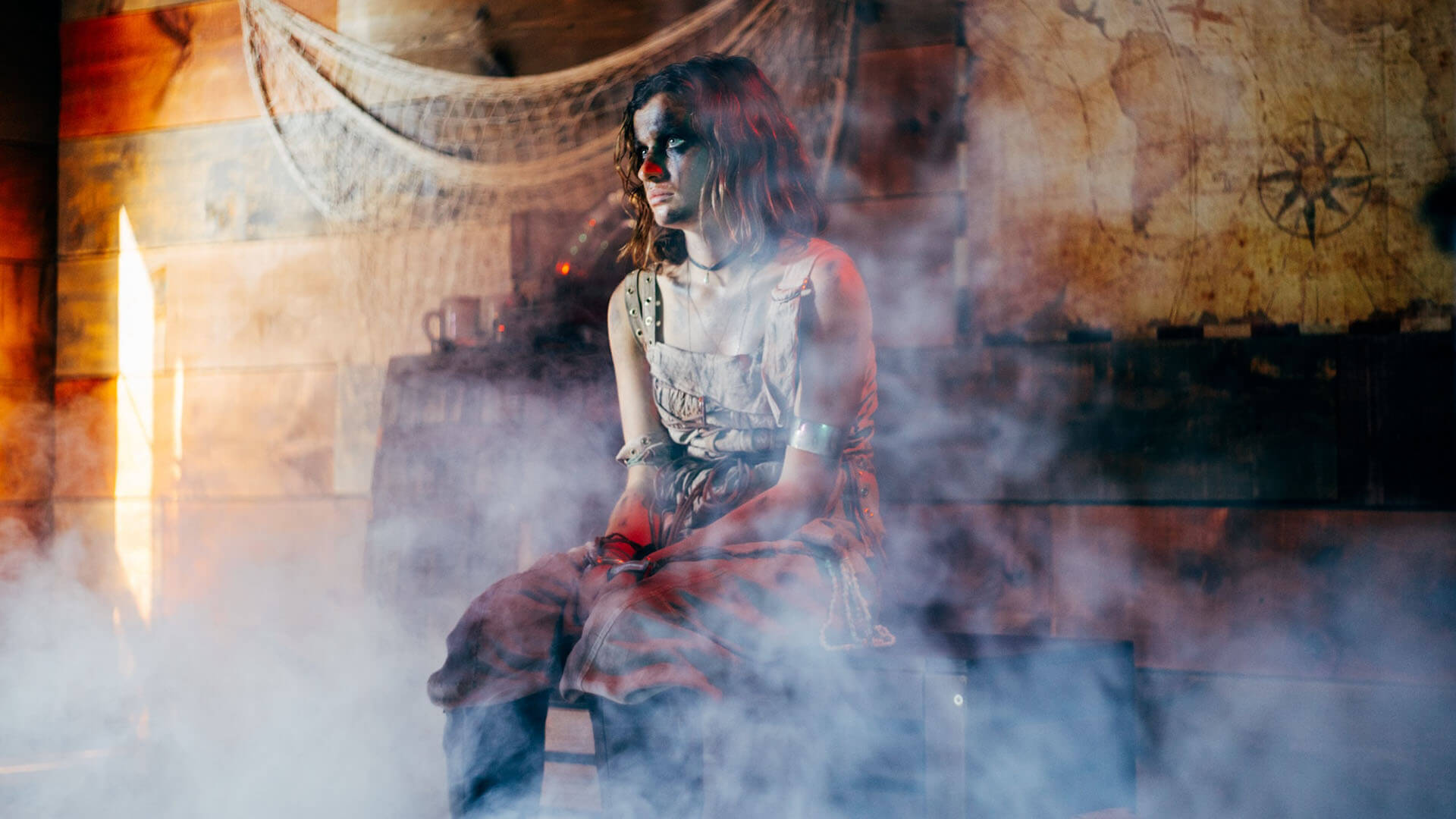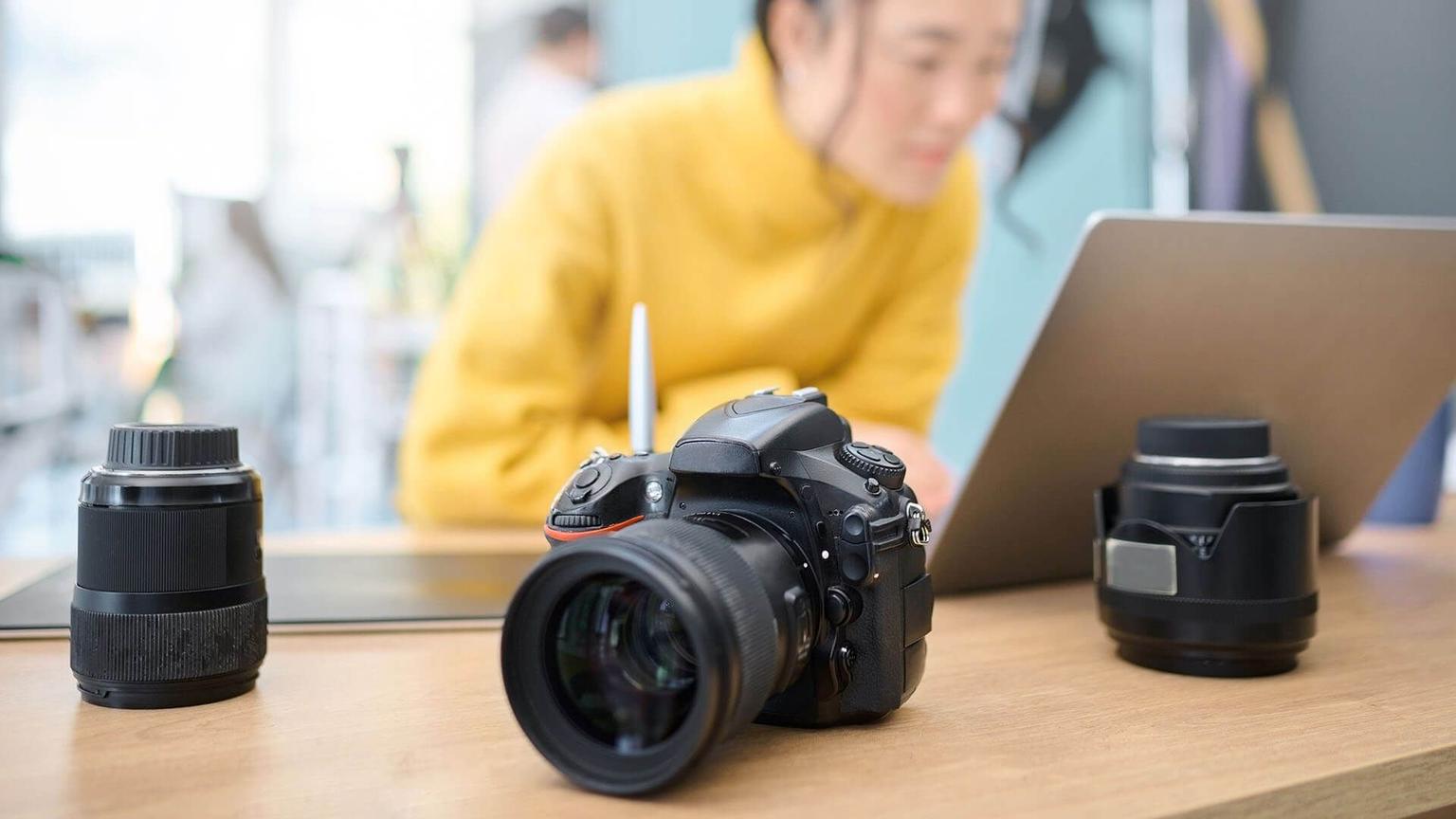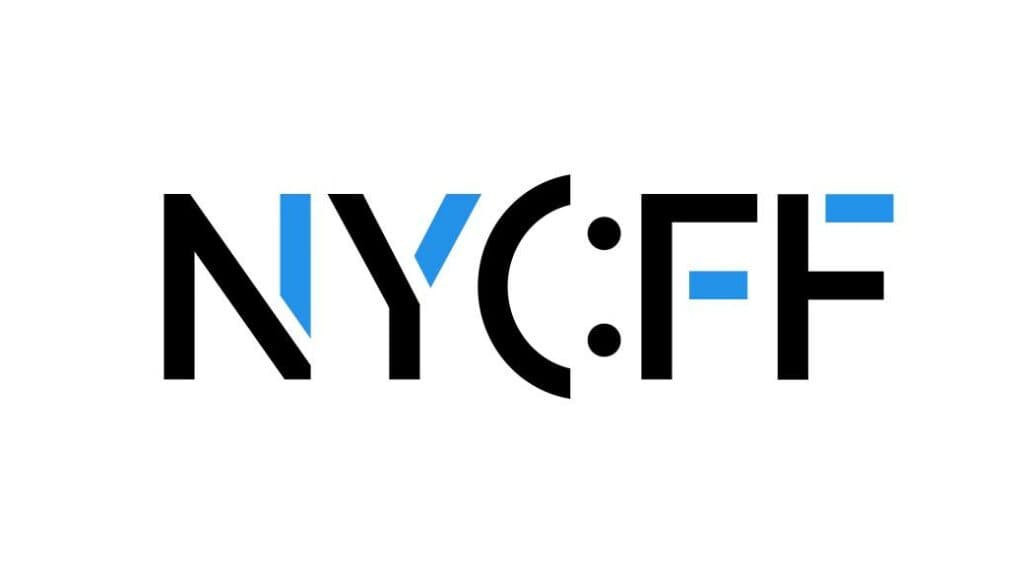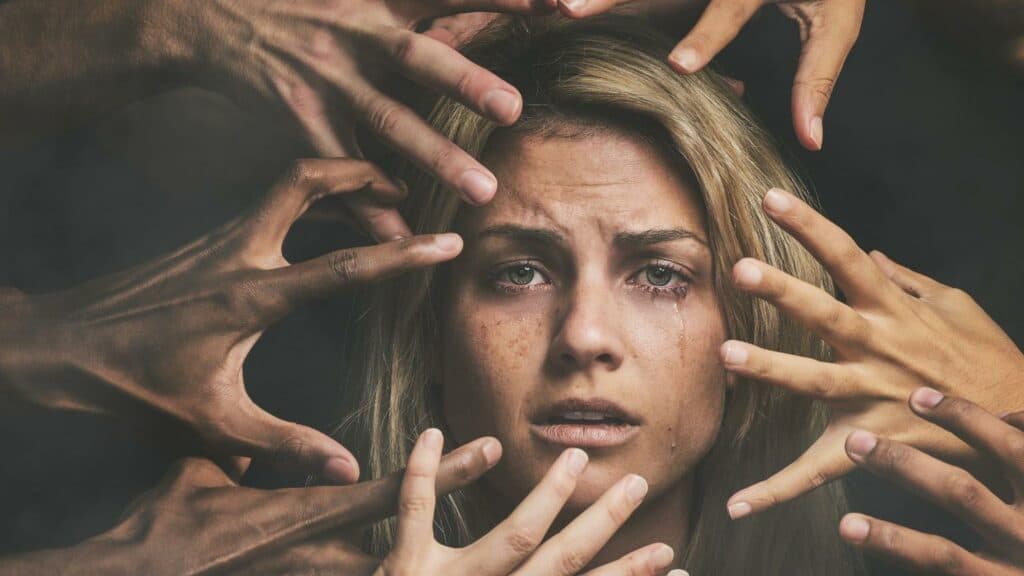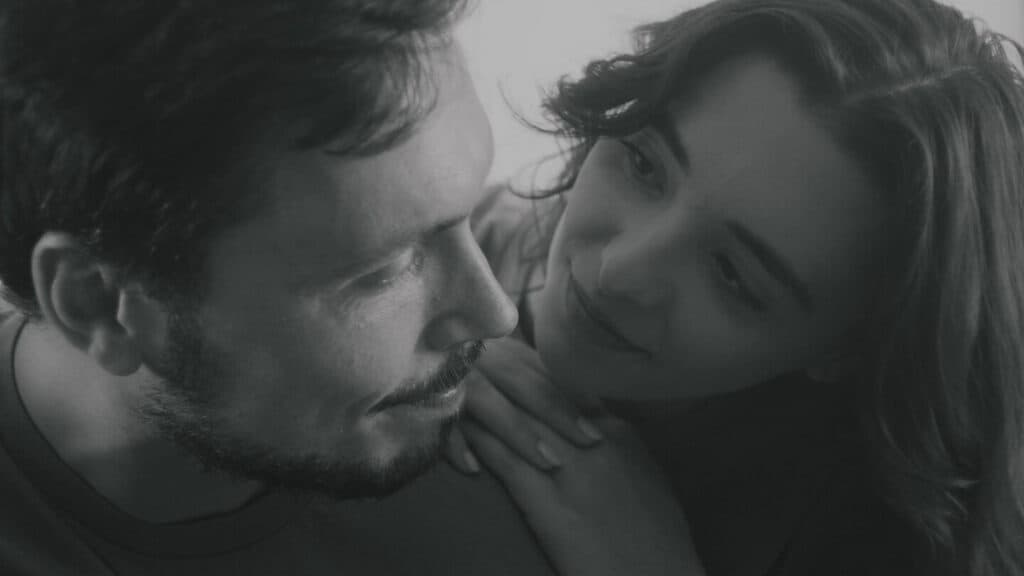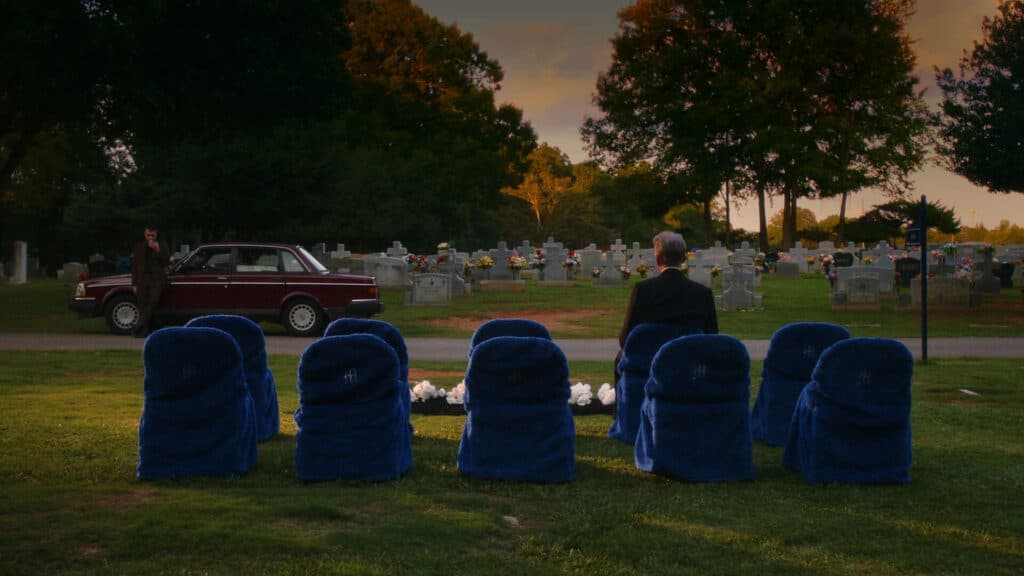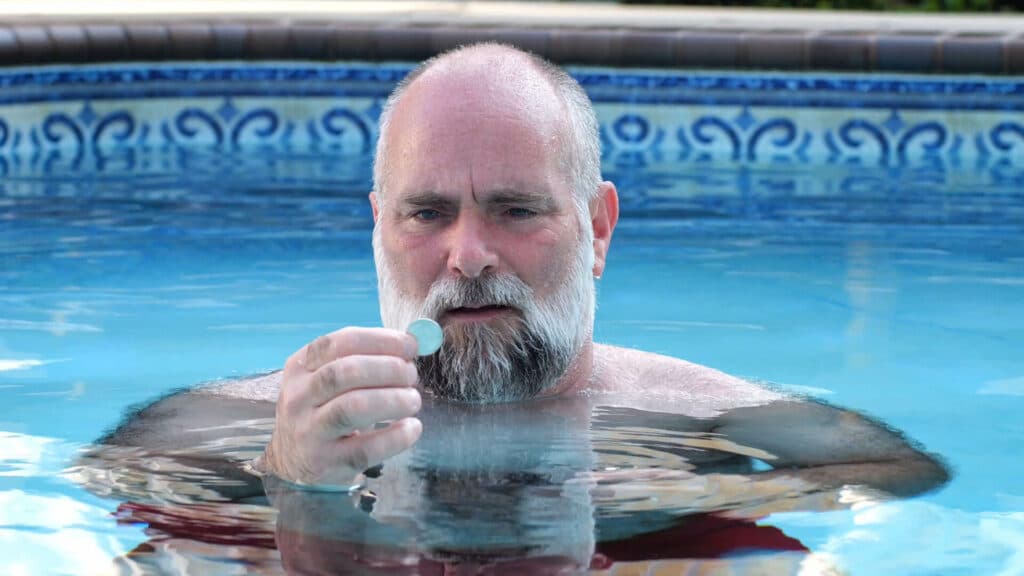Article too long to read?
Director Chandler Clarke has spent over a decade crafting visceral, inspiring non-fiction stories for global brands like Nike and ESPN, shaping the way we see real-life narratives. But for his narrative debut, BZRK, he turns the camera inward. This deeply personal sci-fi horror film is a manifestation of his own long-fought battles with anger and anxiety, born from a life-changing panic attack and a subsequent journey through therapy and mindfulness. In a candid conversation with Indie Shorts Mag, Clarke reveals the creative and emotional process behind translating his inner demons into a superpowered, cinematic world, and how he learned to embrace anger not as a flaw, but as a potential gift.
Indie Shorts Mag: You’ve built an impressive career in non-fiction storytelling, working with major brands and athletes. What prompted the shift to a deeply personal, narrative film like ‘BZRK’?
Chandler Clarke: My passion for film is what first led me into commercial and documentary work. I grew up on ‘80s action, sci-fi, and horror films, later developing a taste for drama—and I’ve always wanted to merge those influences into something uniquely powerful.
The narrative directors I admired growing up shaped the way I see stories—and how I tell them. They showed me that non-fiction could be as compelling as the most imaginative films, inspiring me to capture real-life stories with the same energy and depth. But I also knew that narrative filmmaking would give me the freedom to explore every corner of my creativity.
As my career in the documentary space grew, so did my confidence. After more than a decade in non-fiction, a creative itch began to grow—at the same time, I was working through personal challenges with anxiety and anger. During that period, I often saw myself as weak, broken, and sad. Through therapy, meditation, and mindfulness-based stress reduction, I began to develop a new outlook on life.
One day in therapy, the idea surfaced that anger is not inherently bad—it’s a basic feeling that can’t be shut out, but should be expressed in healthy ways. Days later, walking through New York City, I saw what I could only describe as “injustices” everywhere I looked. I wondered whether the “old Chandler” would have acted or simply accepted them. Then came the 2016 election—hatred, lies, and the raw struggle for power on full display—and my anger reignited. During COVID, I finally had the chance to channel that energy into BZRK. Fast forward to 2023, when I met my future EP, Soukaina Alaoui El Hassani. She was just finishing another short she produced; she was full of energy, always working on passion projects outside her full-time job, and seeing her approach to film inspired me, not to mention her general interests aligned with mine. So I shared the script, and we were off!
My own experience with these mental and emotional struggles is, I believe, universal. I hope that the film resonates with audiences. The adage is “write what you know”—and while BZRK is deeply dramatized, Anders’ struggle is also deeply personal, cathartic, and perhaps, relatable.
Indie Shorts Mag: ‘BZRK’ is described as a “deeply personal sci-fi take on your psychological journey.” Could you walk us through your process of translating your own experiences with anger and anxiety into a compelling sci-fi narrative?
Chandler Clarke: I was a self-righteous, overconfident youth who drank too much and never backed down from a fight. At 23 years old, I had a panic attack that changed my life. But I didn’t run away, I sought help and was determined to manage this new obstacle. This led me to therapy and Mindfulness-Based Stress Reduction. In MBSR, there is a concept called “the observing self,” which teaches you that there are two distinct processes that occur in your mind: your thoughts and you observing those thoughts.
I didn’t like what I was observing. I was judging myself. It made me uncomfortable and scared, and that led to anxiety. Over time, and with help, I realized this side of me was OK, and it was my judgment that spurred my anxiety. This other side of me was often out of control and angry, which was the inspiration for Anders’ struggle. These concepts are portrayed through the surreal nature of BZRK. The idea of layers of the mindscape, a desire for control, the parts of yourself you can’t control, all these very real things are explored in BZRK.
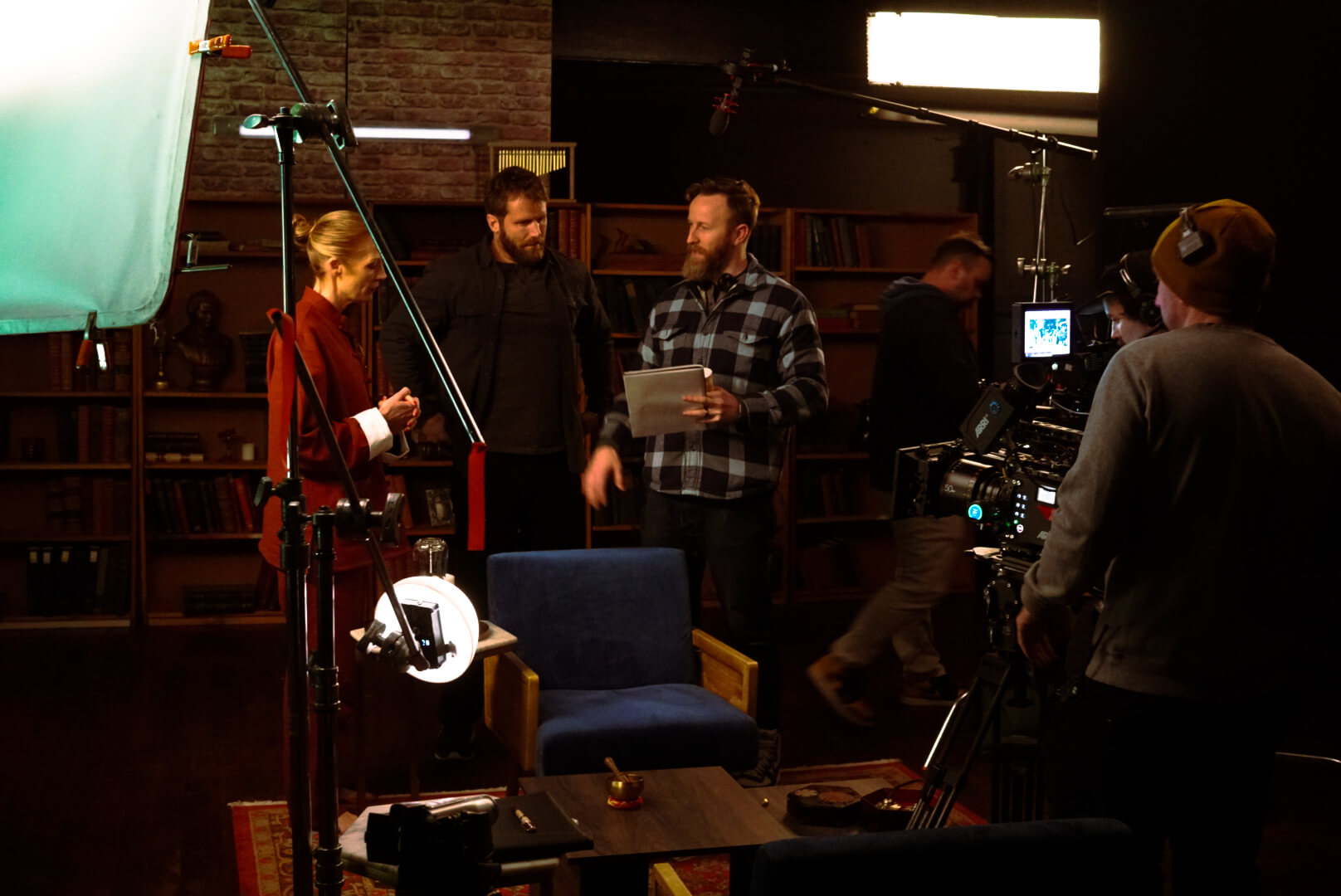
Indie Shorts Mag: The film explores the idea that anger can be a gift, which is a departure from the common view that it’s an emotion to be suppressed. What conversations or new perspectives do you hope ‘BZRK’ sparks among viewers regarding anger and mental health?
Chandler Clarke: The ability to sit with uncomfortable emotions—without running from them or trying to change them—is difficult. I learned that real progress often comes through acceptance. Self-acceptance. It reminds me of the serenity prayer: “God, grant me the serenity to accept the things I cannot change, the courage to change the things I can, and the wisdom to know the difference.”
When you really think about that, it’s complex. Knowing what you can’t change is deeply personal. At the same time, you have to push yourself to act when you can change something. It comes down to asking yourself: Did I do my best? I can often find solace with myself if I believe I did “my best”.
In BZRK, the central struggle is Anders’ “demon” – is his rage—something he hasn’t yet learned to accept. If he can embrace it, he has the potential to turn it into something new – perhaps a force for good.
Personally, my two biggest motivators are love—especially for my family—and anger. In sports or competition, anger can push you further than you thought possible. I don’t support violence, but I do recognize that anger is real and sometimes justified. The challenge is to find a healthy way to express it so it doesn’t crush you.
Indie Shorts Mag: Our review of ‘BZRK’ highlighted its dark, visceral, and visually rich world, drawing comparisons to films like ‘Joker’ and ‘Get Out’. Could you discuss some of the key cinematic choices you made to bring the internal turmoil of your protagonist, Anders, to the screen?
Chandler Clarke: It makes me very happy to say, you hit the nail on the head. The “time and location” of BZRK is heavily influenced by Joker, Se7en, and Taxi Driver. In these films, the “location” is a character that dictates the audience’s interpretation of the film. There are layers of dirt, neon, lights, graffiti, grime, and tension in the city. All this equates to a feeling of uneasiness, and that’s what we wanted in BZRK’s world. The elevator is filled with graffiti and has an ’80s nostalgia to it, and of course, this “real environment” leads Anders to a “hallway” that transitions him into a space where he’s vulnerable, sitting face to face with the person he trusts and is supposed to be helping him.
The industrial loft from David Cronenberg’s The Fly was a big inspiration to Dr. Wagner’s office; we wanted it to feel higher-education, European, minimalistic, and industrial at the same time. We shot the entire film at a 100-year-old rope factory in Paterson NJ, because it had several spaces we could leverage for all our locations, and had that “old-industrial” vibe we could lean into. This odd amalgamation contributes to that growing anxiety of the film; it makes sense, but it isn’t right. Darren Aronofsky’s Black Swan and Jonathan Glazer’s Under The Skin heavily influenced The Void, and then Panos Cosmatos’ Mandy was our reference point for The Mind’s Eye Elevator finale.
Dr. Wagner’s office was built by the talented art department, led by Maddie Jones, in a large open space, as well as the elevator set. BZRK’s DP, Weston Walker, brought an incredible eye to the project. He and I have worked together for years. We speak the same visual language, and he nailed the lighting; he understood the color space we wanted to live in to create the dark world of BZRK. His camera work, plus the impressive art direction, is what brings the world of BZRK to life.
Indie Shorts Mag: The character of Dr. Wagner is a powerful and magnetic presence in the film. What were your inspirations for creating her character, and what is her significance in Anders’ journey of self-discovery?
Chandler Clarke: If you look closely at the name tag on the door before Anders enters, it reads: “Dr. Erika Wagner – MD Psychiatry Kalyana-Mitta”—which is, in itself, a paradox. Kalyana-Mitta translates to “spiritual friend” and refers to the concept of having supportive companions on the path of Dharma—someone who helps you navigate the spiritual journey. It emphasizes the importance of positive social connections in fostering personal growth and well-being, particularly within a Buddhist context.
Anders is alone, scared, and trusts Dr. Wagner to help him—but does she truly have his best interests at heart? Cate Blanchett in Nightmare Alley and Robin Wright in Blade Runner 2049 were key inspirations for the character. As is alluded to in BZRK—and explored more deeply in the feature script—there is a history between Dr. Wagner and Anders’ parents, who we know are deceased. Therefore, Dr. Wagner is a family acquaintance, a doctor, and a spiritual advisor—all of which make her a conflicted character.
Does she care about Anders? Or does she have another agenda? Her motives are deliberately ambiguous, and Regina Schneider and I discussed her character at length—when she should feel neutral, maternal, or something more sinister. Regina brought that complexity to life beautifully.
Indie Shorts Mag: The ending of ‘BZRK’ leaves the audience wanting more and hints at a larger story. You’ve mentioned a feature script for ‘BZRK’ exists. Can you give us a teaser of what we might expect from the expanded world of ‘BZRK’ in the future?
Chandler Clarke: The feature script is a visceral, R-rated character study that blends elements of psychological terror, horror, and science fiction. Its Inspiration is Jacob’s Ladder, Unbreakable, The Cell, and anime.
BZRK redefines the meaning of anxiety. The premise is inspired by modern psychotherapy and both ancient and contemporary meditation practices. The film explores man’s fight or flight response, anger, and the untapped power within us all – the breath. Anders is a tormented soul, living in a big city during a tumultuous time – think 2020 NYC BLM Protests or 2025’s LA ICE Protests. To cope with his anxiety, he puts himself through brutal workouts and wears large headphones that play meditations to help block out the noise that plagues him. He spends his lonely existence as a garbage man, cleaning up the streets after the evening’s turmoil, and visits his mom to keep an eye on her and to help steady himself. Mom is the only person Anders has a relationship with, and when she becomes ill, his anxiety becomes reality, and his primal rage spews into a brutal street brawl, setting Anders off on his anti-hero journey, where he seeks to rid himself of this anger. By doing so, he discovers the BZRK program and learns that there are others out there who are interested in him.
Indie Shorts Mag: You wear multiple hats as a director, writer, and producer. How do these roles intersect and influence each other in your creative process, especially on a project as personal and multi-layered as ‘BZRK’?
Chandler Clarke: In my opinion, being a director is having a story and a strong vision for what you want to tell that story, then being able to create that vision through leadership and collaboration with your crew. When I write, I can often overwrite because I’m envisioning the scene as a director. What better way to execute your direction than to write it in a manner that you can follow and then put into practice? Through my years as a producer, I learned the importance of pre-production – scheduling, crewing, casting, and shot lists, so I worked closely with my AD Shana Purnama and my EP Soukaina Alaoui El Hassani to ensure I had a firm grasp on how we were executing, which helps me feel confident and allows me to make quick decisions. All of that equates to being prepared and knowing what you need when you get on set. You have “Must Have” Shots, Necessary Coverage, and Nice to Haves, and must be so intimate with your story, have such a vision, that you can make important decisions on the fly as to stay on time and on budget, but creatively faithful.
Indie Shorts Mag: As a father and a filmmaker with a demanding career, how do you navigate the balance between your professional and personal life, especially when your work, like ‘BZRK’, is so deeply intertwined with your personal journey?
Chandler Clarke: It can be difficult to balance a career, family, and passion projects like BZRK. First and foremost, I’m very fortunate that I have a wife, Kylee, who helps me navigate life. She’s not only my wife, she’s a BZRK EP, my biggest fan, and best friend. She provides me with support in every imaginable way. So without her, BZRK doesn’t happen. I think Kylee and my friends and family – many of whom donated to make BZRK possible- see how passionate I am and want to nourish that, and see what it can become. I don’t take that lightly. So I stay up late after the kids fall asleep, I get up early when the family’s still asleep, I work on the airplane when I’m flying for my full-time job, and the Notes App is my best friend. Don’t get me wrong, things take me longer these days, so I remind myself to be patient, but when the time is there, I try to find the motivation to get to work because no one else is going to do it, you’ve got to help yourself.
Indie Shorts Mag: In addition to your film work, your screenwriting has also received several accolades. How does your approach to storytelling differ when you’re writing a script versus when you’re directing a documentary or branded content?
Chandler Clarke: To me, having that initial vision, whether it be a scene or a character, then putting that down on paper is the key to a successful documentary or script. Generally speaking, I rely heavily on pre-production for both. Outlines, research, motifs I’d like to explore, ideal scenes to tell the story, or moments I want to capture. A degree of flexibility is always important, but especially when it comes to documentaries or commercial work with clients. That “paper edit or pitch” you made was the vision, but based on how the story develops, the answers you get, or don’t get, new angles emerge, and you need to be flexible, find solutions, and tell the story that’s right based on these new circumstances. You can’t fight that; you have to embrace it and adapt. Another key difference is “ the end”. In documentaries, it’s often clear when the work is done, the story is told, but with BZRK, it’s such a personal endeavor, it’s tough to put the pen down! I wrote the first version of the short script in 2021 (swap the elevator for a subway platform!), the feature script in 2022, and made the short in 2024, but I’m still making tweaks to the feature script, hoping someone is intrigued by it, with the end goal being to make my first feature film.
Indie Shorts Mag: Finally, for the aspiring filmmakers who follow Indie Shorts Mag, what advice can you offer on the power of personal storytelling and how they can find and develop their unique voice in the competitive world of indie film?
Chandler Clarke: I’m still an aspiring filmmaker, and I’ve been in this space for 15 years. It’s a difficult career path; timing, luck, networking, and talent all play a large role in your “success”. I’ve missed out on festivals and been passed on so many times, the feeling of rejection can weigh on you; so a saying I often use to stay motivated is, “Keep Fighting the Good Fight”. If you’ve got a story you want to tell and you’re passionate about it – meaning you go to sleep thinking about the idea and you wake up thinking about the idea – then there is no time like the present. Do it right, plan, prep, write, get feedback, find a great team of people that will put the same amount of energy into the project as you, raise money, but just know that it’s on you. You will be the person to bring that story to life, no one else. Believe me, when it’s all done, and you realize you did everything you could to make your vision a reality, there’s no better feeling.
From the cinematic influences of Joker and The Fly to the deeply personal struggle for self-acceptance, Chandler Clarke’s journey with BZRK is a testament to the power of personal storytelling. It’s a path he navigates with the unwavering support of his family and a relentless work ethic, finding time between a demanding career and fatherhood to bring his vision to life. His advice to fellow creatives is embedded in his own story: believe in your vision so fiercely that you wake up and go to sleep with it, build a passionate team, and do the work, because no one else will do it for you. For an aspiring filmmaker who has faced his share of rejection, his motivation is a mantra that resonates with creators everywhere: “Keep Fighting the Good Fight.”
Watch BZRK Trailer: https://www.bzrkfilm.com/
About the Author
Related Posts
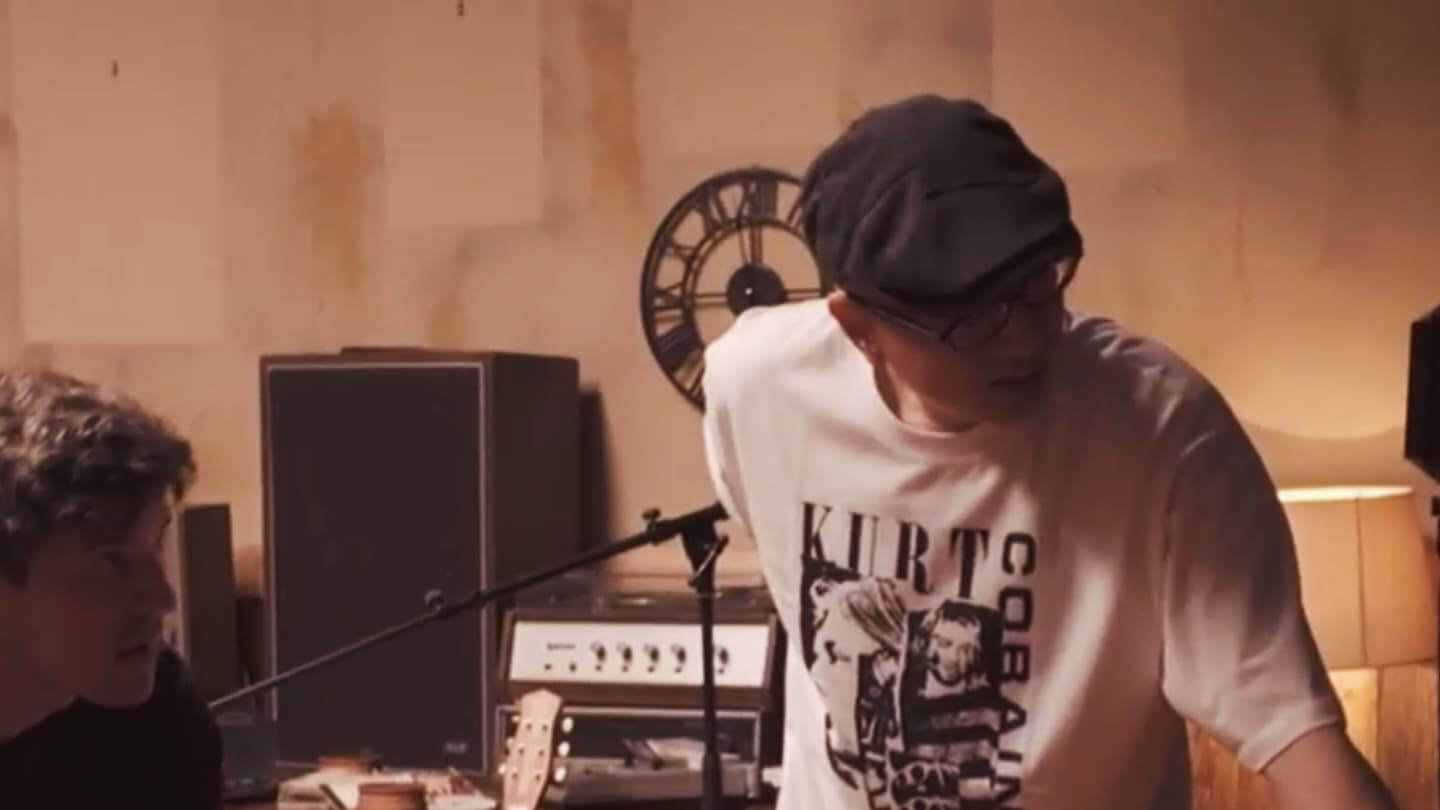 Interviews
InterviewsM&C Saatchi to Surrealism: How Sam Iwata Merges Commercial Rigor with the Psychological Abyss
 Interviews
InterviewsCrafting A ‘Dark Visual Lullaby’ On 35mm: Anjini Taneja Azhar On The Magical Realism Of ‘Who Are You, Nanu?’
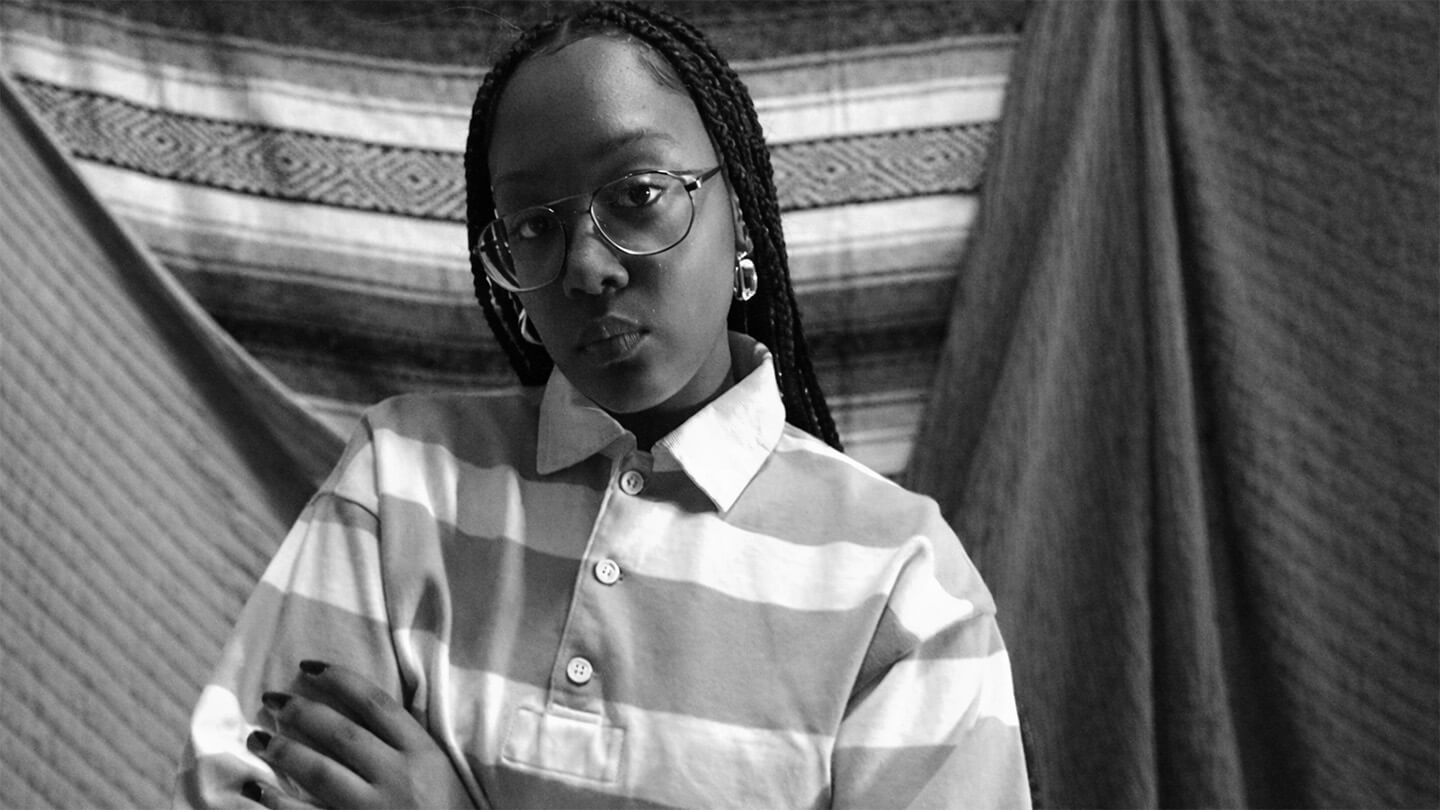 Interviews
InterviewsFraming The Future: Jada George On Visual Tension, Dystopian Narratives, And Reclaiming The Black Experience In Sci-Fi
No comments yet.
Got Something to add to this article?
Your email address will not be published. Required fields are marked *

